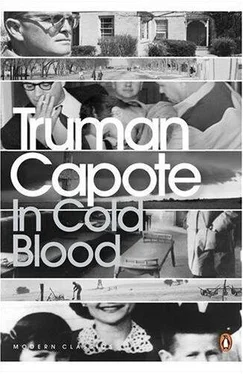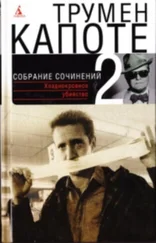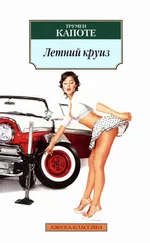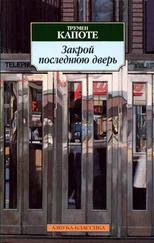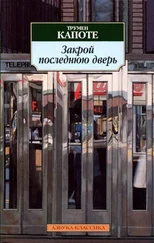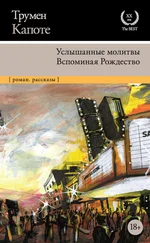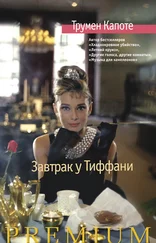Трумен Капоте - In Cold Blood
Здесь есть возможность читать онлайн «Трумен Капоте - In Cold Blood» весь текст электронной книги совершенно бесплатно (целиком полную версию без сокращений). В некоторых случаях можно слушать аудио, скачать через торрент в формате fb2 и присутствует краткое содержание. Год выпуска: 2000, ISBN: 2000, Издательство: Penguin, Жанр: Современная проза, на английском языке. Описание произведения, (предисловие) а так же отзывы посетителей доступны на портале библиотеки ЛибКат.
- Название:In Cold Blood
- Автор:
- Издательство:Penguin
- Жанр:
- Год:2000
- ISBN:0-14-118257-1 / 978-0-14-118257-5
- Рейтинг книги:4 / 5. Голосов: 2
-
Избранное:Добавить в избранное
- Отзывы:
-
Ваша оценка:
- 80
- 1
- 2
- 3
- 4
- 5
In Cold Blood: краткое содержание, описание и аннотация
Предлагаем к чтению аннотацию, описание, краткое содержание или предисловие (зависит от того, что написал сам автор книги «In Cold Blood»). Если вы не нашли необходимую информацию о книге — напишите в комментариях, мы постараемся отыскать её.
In Cold Blood — читать онлайн бесплатно полную книгу (весь текст) целиком
Ниже представлен текст книги, разбитый по страницам. Система сохранения места последней прочитанной страницы, позволяет с удобством читать онлайн бесплатно книгу «In Cold Blood», без необходимости каждый раз заново искать на чём Вы остановились. Поставьте закладку, и сможете в любой момент перейти на страницу, на которой закончили чтение.
Интервал:
Закладка:
"Mr. Clutter travels a great deal," she said to Jolene. "Oh, he's always headed somewhere. Washington and Chicago and Oklahoma and Kansas City - sometimes it seems like he's never home. But wherever he goes, he remembers how I dote on tiny things." She unfolded a little paper fan. "He brought me this from San Francisco. It only cost a penny. But isn't it pretty?"
The second year of the marriage, Eveanna was born, and three years later, Beverly; after each confinement the young mother had experienced an inexplicable despondency - seizures of grief that sent her wandering from room to room in a hands wringing daze. Between the births of Beverly and Nancy, three more years elapsed, and these were the years of the Sunday picnics and of summer excursions to Colorado, the years when she really ran her own home and was the happy center of it. But with Nancy and then with Kenyon, the pattern of postnatal depression repeated itself, and following the birth of her son, the mood of misery that descended never altogether lifted; it lingered like a cloud that might rain or might not. She knew "good days," and occasionally they accumulated into weeks, months, but even on the best of the good days, those days when she was otherwise her "old self," the affectionate and charming Bonnie her friends cherished, she could not summon the social vitality her husband's pyramiding activities required. He was a "joiner," a "born leader"; she was not and stopped attempting to be. And so, along paths bordered by tender regard, by total fidelity, they began to go their semi-separate ways - his a public route, a march of satisfying conquests, and hers a private one that eventually wound through hospital corridors. But she was not without hope. Trust in God sustained her, and from time to time secular sources supplemented her faith in His forthcoming mercy; she read of a miracle medicine, heard of a new therapy, or, as most recently, decided to believe that a "pinched nerve" was to blame.
"Little things really belong to you," she said, folding the fan. "They don't have to be left behind. You can carry them in shoebox."
"Carry them where to?"
"Why, wherever you go. You might be gone for a long time."
Some years earlier Mrs. Clutter had traveled to Wichita for two weeks of treatment and remained two months. On the advice of a doctor, who had thought the experience would aid her to regain "a sense of adequacy and usefulness," she had taken an apartment, then found a job - as a file clerk at the Y. W. C. A. Her husband, entirely sympathetic, had encouraged the adventure, but she had liked it too well, so much that it seemed to her unchristian, and the sense of guilt she in consequence developed ultimately outweighed the experiment's therapeutic value.
"Or you might never go home. And - it's important always to have with you something of your own. That's really yours."
The doorbell rang. It was Jolene's mother.
Mrs. Clutter said, "Goodbye, dear," and pressed into Jolene's hand the paper fan. "It's only a penny thing - but it's pretty."
Afterward Mrs. Clutter was alone in the house. Kenyon and Mr. Clutter had gone to Garden City; Gerald Van Vleet had left for the day; and the housekeeper, the blessed Mrs. Helm to whom she could confide anything, did not come to work on Saturdays. She might as well go back to bed - the bed she so rarely abandoned that poor Mrs. Helm had to battle for the chance to change its linen twice a week.
There were four bedrooms on the second floor, and hers was the last at the end of a spacious hall, which was bare except for a baby crib that had been bought for the visits of her grandson. If cots were brought in and the hall was used as a dormitory, Mrs. Clutter estimated, the house could accommodate twenty guests during the Thanksgiving holidays; the others would have to lodge at motels or with neighbors. Among the Clutter kinfolk the Thanksgiving get-together was an annual, turnabout to-do, and this year Herb was the appointed host, so it had to be done, but coinciding, as it did, with the preparations for Beverly's wedding, Mrs. Clutter despaired of surviving either project. Both involved the necessity of making decisions - a process she had always disliked, and had learned to dread, for when her husband was off on one of his business journeys she was continually expected, in his absence, to supply snap judgments concerning the affairs of the farm, and it was unendurable, a torment. What if she made a mistake? What if Herb should be displeased? Better to lock the bedroom door and pretend not to hear, or say, as she sometimes did, "I can't. I don't know. Please."
The room she so seldom left was austere; had the bed been made, a visitor might have thought it permanently unoccupied. An oak bed, a walnut bureau, a bedside table - nothing else except lamps, one curtained window, and a picture of Jesus walking on the water. It was as though by keeping this room impersonal, by not importing her intimate belongings but leaving them mingled with those of her husband, she lessened the offense of not sharing his quarters. The only used drawer in the bureau contained a jar of Vick's Vaporub, Kleenex, an electric heating pad, a number of white nightgowns, and white cotton socks. She always wore a pair of these socks to bed, for she was always cold. And, for the same reason, she habitually kept her windows closed. Summer before last, on a sweltering August Sunday, when she was secluded here, a difficult incident had taken place. There were guests that day, a party of friends who had been invited to the farm to pick mulberries, and among them was Wilma Kidwell, Susan's mother. Like most of the people who were often entertained by the Clutters, Mrs. Kidwell accepted the absence of the hostess without comment, and assumed, as was the custom, that she was either "indisposed" or "away in Wichita." In any event, when the hour came to go to the fruit orchard, Mrs. Kidwell declined; a city-bred woman, easily fatigued, she wished to remain indoors. Later, while she was awaiting the return of the mulberry pickers, she heard the sound of weeping, heartbroken, heartbreaking. "Bonnie?" she called, and ran up the stairs, ran down the hall to Bonnie's room. When she opened it, the heat gathered inside the room was like a sudden, awful hand over her mouth; she hurried to open a window. "Don't!" Bonnie cried. "I'm not hot. I'm cold. I'm freezing. Lord, Lord, Lord!" She flailed her arms. "Please, Lord, don't let anybody see me this way." Mrs. Kidwell sat down on the bed; she wanted to hold Bonnie in her arms, and eventually Bonnie let herself be held. "Wilma," she said, "I've been listening to you, Wilma. All of you. Laughing. Having a good time. I'm missing out on everything. The best years, the children - everything. A little while, and even Kenyon will be grown up - a man.
And how will he remember me? As a kind of ghost, Wilma." Now, on this final day of her life, Mrs. Clutter hung in the closet the calico housedress she had been wearing, and put on one of her trailing nightgowns and a fresh set of white socks. Then, before retiring, she exchanged her ordinary glasses for a pair of reading spectacles. Though she subscribed to several periodicals (the Ladies' Home Journal, McCalls, Reader's Digest, and Together: Midmonth Magazine for Methodist Families'), none of these rested on the bedside table - only a Bible. A bookmark lay between its pages, a stiff piece of watered silk upon which an admonition had been embroidered: "Take ye heed, watch and pray: for ye know not when the time is."
The two young men had little in common, but they did not realize it, for they shared a number of surface traits. Both, for example, were fastidious, very attentive to hygiene and the condition of their fingernails. After their grease-monkey morning, they spent the better part of an hour sprucing up in the lavatory of the garage. Dick stripped to his briefs was not quite the same as Dick fully clothed. In the latter state, he seemed a flimsy dingy-blond youth of medium height, fleshless and perhaps sunken-chested; disrobing revealed that he was nothing of the sort, but, rather, an athlete constructed on a welterweight scale. The tattooed face of a cat, blue and grinning, covered his right hand; on one shoulder a blue rose blossomed. More markings, self-designed and self-executed, ornamented his arms and torso: the head of a dragon with a human skull between its open jaws; bosomy nudes; a gremlin brandishing a pitchfork; the word peace accompanied by a cross radiating, in the form of crude strokes, rays of holy light; and two sentimental concoctions- one a bouquet of flowers dedicated to mother-dad, the other a heart that celebrated the romance of Dick and Carol, whom he had married when he was nineteen, and from whom he had separated six years later in order to "do the right thing" by another young lady, the mother of his youngest child. ("I have three boys who I will definitely take care of," he had written in applying for parole. "My wife is remarried. I have been married twice, only I don't want anything to do with my second wife. ") But neither Dick's physique nor the inky gallery adorning it made as remarkable an impression as his face, which seemed composed of mismatching parts. It was as though his head had been halved like an apple, then put together a fraction off center. Something of the kind had happened; the imperfectly aligned features were the outcome of a car collision in 1950 - an accident that left his long-jawed and narrow face tilted, the left side rather lower than the right, with the results that the lips were slightly aslant, the nose askew, and his eyes not only situated at uneven levels but of uneven size, the left eye being truly serpentine, with venomous, sickly-blue squint that although it was involuntarily acquired, seemed nevertheless to warn of bitter sediment at the bottom of his nature. But Perry had told him, "The eye doesn't matter. Because you have a wonderful smile. One of those smiles really work. " It was true that the tightening action of a smile contracted his face into its correct proportions, and made it possible to discern a less unnerving personality - an American-style "good kid" with an outgrown crew cut, sane enough but not too bright. (Actually, he was very intelligent. An I. Q. test taken in prison gave him a rating of 130; the average subject, in prison or out, scores between 90 and 110.)
Читать дальшеИнтервал:
Закладка:
Похожие книги на «In Cold Blood»
Представляем Вашему вниманию похожие книги на «In Cold Blood» списком для выбора. Мы отобрали схожую по названию и смыслу литературу в надежде предоставить читателям больше вариантов отыскать новые, интересные, ещё непрочитанные произведения.
Обсуждение, отзывы о книге «In Cold Blood» и просто собственные мнения читателей. Оставьте ваши комментарии, напишите, что Вы думаете о произведении, его смысле или главных героях. Укажите что конкретно понравилось, а что нет, и почему Вы так считаете.
